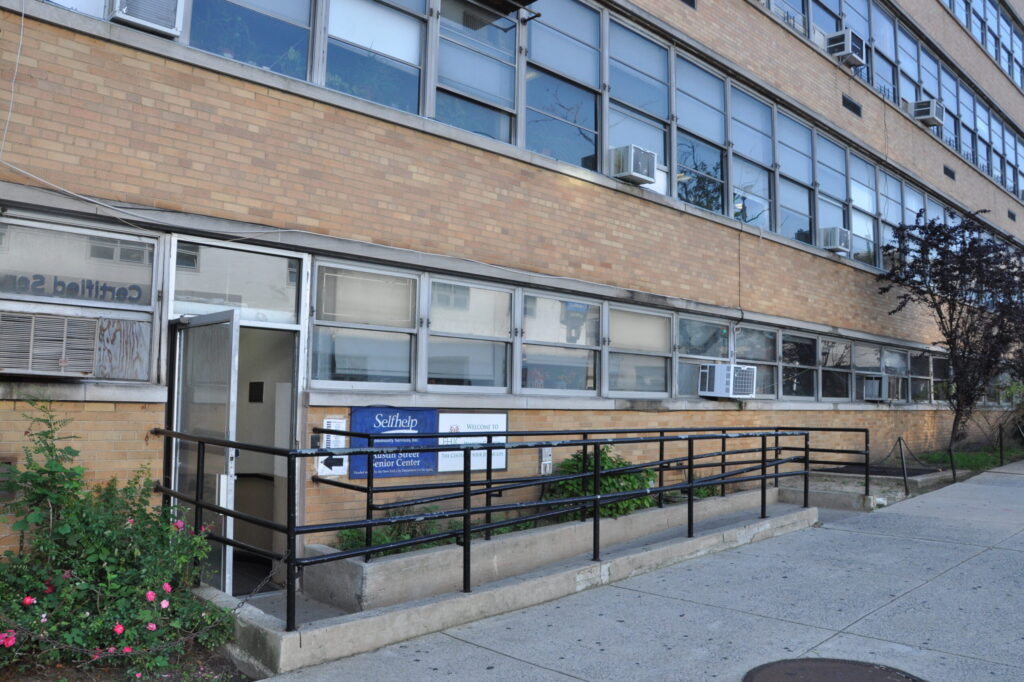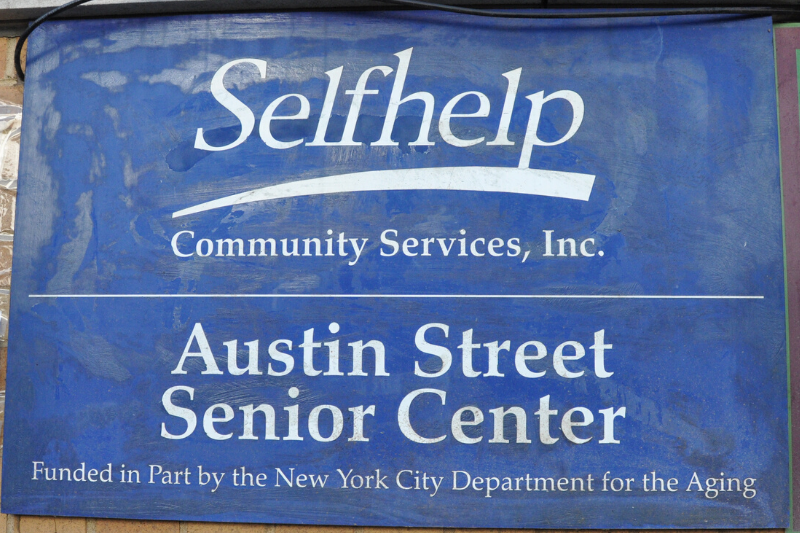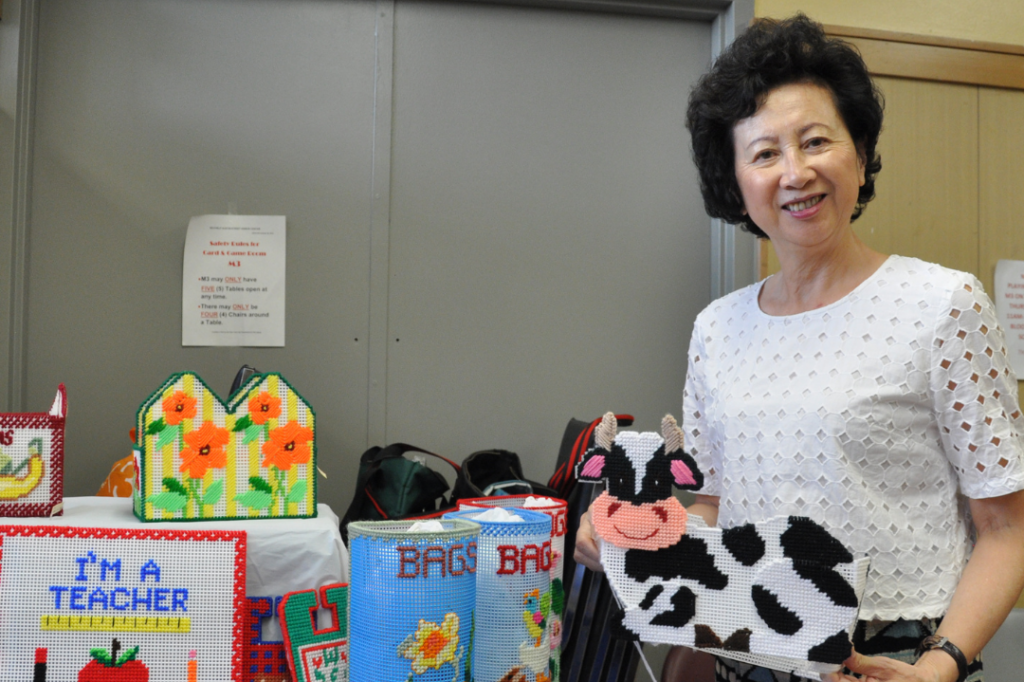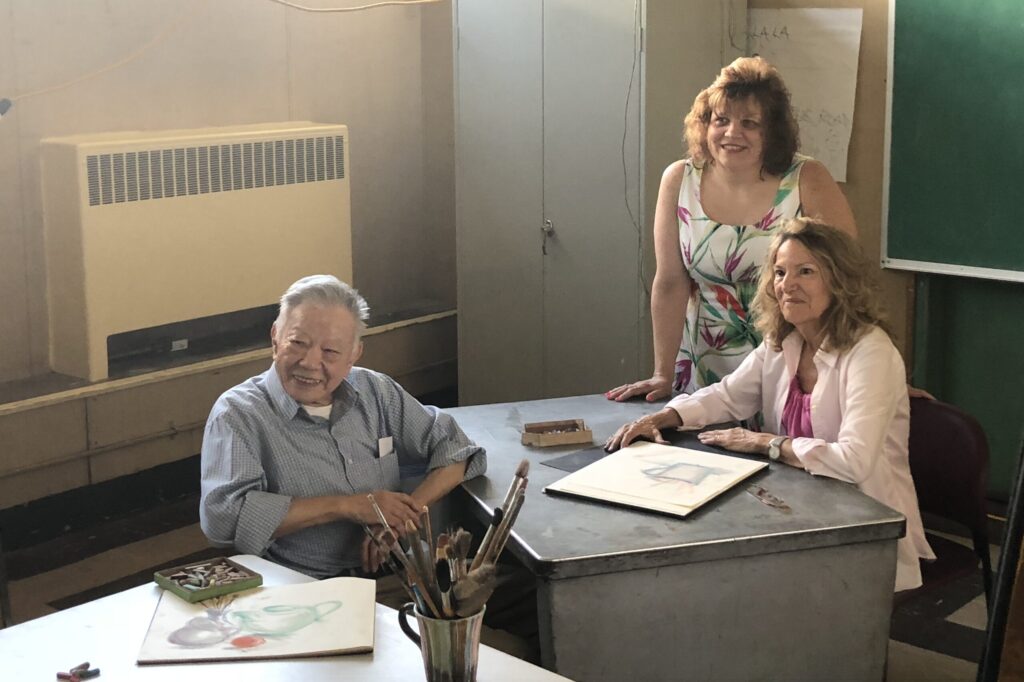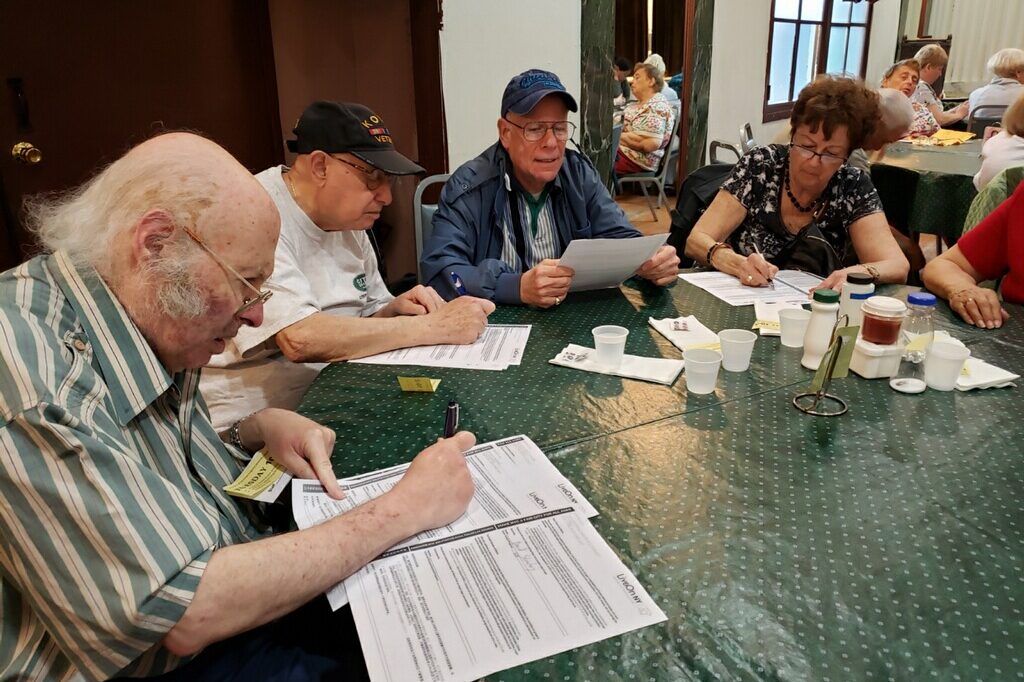Selfhelp Alzheimer's Resource Program (SHARP)
Overview
For over three decades, the Selfhelp Alzheimer’s Resource Program (SHARP) has been a lifeline for individuals in the early to mid-stages of Alzheimer’s disease and their caregivers. Operating from the Clearview Older Adult Center in Bayside, Queens, SHARP’s Social Adult Daycare Services provide a nurturing and stimulating environment for participants while providing respite for caregivers. For five hours each day, Monday to Friday, SHARP facilitates socialization and stimulating activities. Such as music therapy, art appreciation, Neurobics, Wii bowling, and other creative and cognitive exercises. Recognizing the vital role of caregivers, SHARP also offers caregiver support, including informational resources and individual and family counseling.

Social Adult Daycare Services
Newly diagnosed individuals undergo a fundamental emotional and psychological shift. It is important to find things they can still do well. Through a combination of the small group size, individualized care, empowering games and activities, and a host of social opportunities, Selfhelp’s SHARP model helps participants feel as if their fellow group members are an extended family.
Individuals who have been newly diagnosed with dementia are still highly mentally and physically functional. They need support in maintaining their levels of functioning for as long as possible. SHARP’s day program activities are designed to do this and there is strong evidence these activities are effective.
At SHARP, the ratio of clients to staff is five-to-one.
SHARP’s Social Adult Day Care model includes a variety of engaging activities such as music sessions, Neurobic activities, Nintendo Wii, Dakim brain fitness program, group exercise, door-to-door transportation, congregate meals, and even virtual classes for homebound individuals. Additionally, SHARP places importance on intergenerational connections and partners with local schools to foster interactions between seniors and youth.

Program Highlights
Individualized care plans
These are informed by client assessments and modified in response to ongoing evaluation through direct observation. The plans include specific goals for each participant. The mission is to delay cognitive and physical decline for as long as possible.
Door-to-door transportation
Through generous funding from the NYC City Council, transportation is available to and from the program, offering participants a familiar face to pick them up and take them home, while providing additional respite for the caregiver.
Neurobics
These activities, developed by a specialist in neuroscience, sharpen the senses and challenge participants to use their brains in a different way. This activates underused nerve pathways and connections when others no longer function well. An independent study found Neurobics to be effective at improving memory and reducing depression.
Besides finding Neurobics enjoyable, many of the clients tend to be more alert and active after participating. A participant will engage in activities such as writing her name with her opposing hand, wearing a blindfold to identify a piece of food by taste, smell, and touch, and attempting to finish a sentence by providing the appropriate word. Another favorite activity has been learning foreign languages. The social worker has been able to incorporate several clients into the role of instructor, who teach others in the group their native language. Participants are beginning to understand that the primary goal of the exercise is not to learn a new language but to open up new pathways in the brain.
Dakim[m]Power
This peer-reviewed, clinically proven brain fitness program is delivered on computers. SHARP was the first respite program on the East Coast to implement Dakim. Rigorous yet entertaining, the exercises use graphics, music, humor, movie clips, stories, and trivia across multiple levels of challenge to improve cognitive functions.


Music sessions
Sing-along sessions to familiar songs provide an enjoyable social setting that benefits isolated seniors. In addition to regular classes, the music therapist has formed a chorus of seniors who perform for family members at program concert events. Music therapy helps to reduce depression, enhance social and emotional skills, improve memory, and decrease the frequency of agitated and aggressive behaviors in people with Alzheimer’s disease.
Nintendo Wii
Nintendo Wii allows members to participate in virtual sports like bowling, tennis, and golf, which provides both physical exercise and cognitive stimulation. This activity has enabled some of the group members to emerge as “good bowlers.” The rest of the group is very supportive when a member bowls a strike or spare. Given the fact that participants are on a decline in terms of skills and self-esteem, to be able to establish an area of expertise is very gratifying. In addition, traditional games such as trivia and hangman are adapted to be achievable at all levels of ability.
Recreational and social activities
Celebrations, dancing, arts & crafts, and discussion groups (current events and topics of personal interest to the participants) are regularly held. SHARP also partners with local schools to provide activities that bring seniors together with youth.
Group exercise
Chair-based exercise classes encourage stretching and movement, along with activities such as tossing and catching balls to promote healthy reflexes and walking.
Congregate meals and snacks
Participants receive a hot, nutritious lunch and snack every day.
Virtual classes
Virtual classes are an innovation that emerged from the pandemic. For $60 per month, those who cannot join SHARP in-person can attend virtual programming online.
About our SHARP Staff
Erin Brennan MPS, Q.D.C.P.
Erin Brennan, Senior Programs Director, joined Selfhelp as a social worker in 1999 and has been overseeing SHARP since 2001. Ms. Brennan has been responsible for the creation of SHARP enhancements including music therapy, caregiver support, and client-centered technologies, among others. She holds a Masters in Professional Studies in Gerontology from Long Island University, and is a certified Qualified Dementia Care Provider.
Maxene Sternberg, LCSW
Maxene Sternberg is a licensed clinical social worker and has experience working with developmentally disabled adults and children, and home care. She began with Selfhelp 18 years ago at the Clearview Senior Center and was promoted to Program Coordinator for the SHARP program in 2018. Ms. Sternberg brings a caring and enthusiastic energy to the SHARP center.


